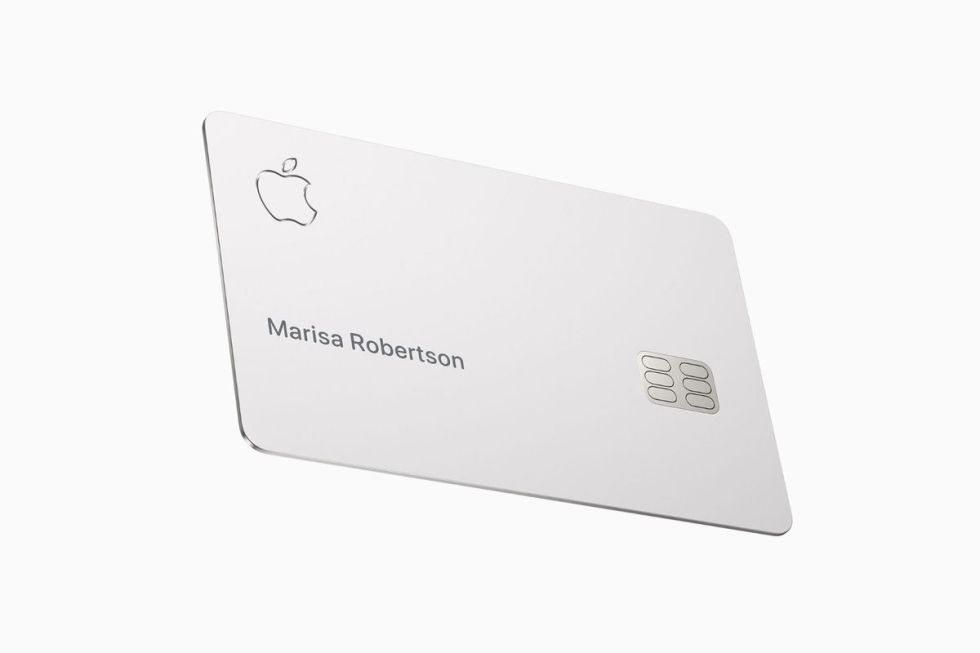The Apple credit card launches this summer. Here’s why it nothing like Bitcoin and is more underwhelming than a utility token with no use-case.
Apple Announces Credit Card
Apple has long been revered as the world’s most innovative company. There’s no denying that the smartphone changed the way billions of people around the world live their lives forever. But it’s time for the trailblazing tech company to wake up and smell the roses.
While Apple was releasing one carbon-copy product after another at higher and higher prices, the competition was busy doing the opposite. Now the high-end, high-priced tech manufacturer is scrambling to hold its own in a rapidly evolving market. And with the launch of its underwhelming Apple Card, there’s something sad about the stench of its desperation.
Apple Card vs Samsung’s Built-In Bitcoin Wallet
Apple’s largest competitor apart from the slew of cheaper Chinese products is undoubtedly Samsung. The South Korean giant hasn’t had an easy ride either with equally pricey products getting undercut left and right.
But as one large company embraces the future, its flagship Galaxy S10 coming with a built-in Bitcoin wallet, Apple’s response is disappointing, to say the least.
Rather than acknowledge the cryptocurrency revolution, and appeal to a younger market, the smartphone manufacturer aims to ‘disrupt’ the credit card industry. Isn’t that the wrong pool to be swimming in?
The revolution won’t come in the form of borderless transactions since it’s only available in the United States. It also won’t be peer-to-peer, eliminate centralized institutions, or greatly reduce fees. Although its interest rates will be:
Among the lowest in the industry
Mind. Blown.
Apple’s game plan is more about additional security of payments, no annual or foreign transaction fees, and the fact that (wait for it) its partner Goldman Sachs will never sell your data for marketing.
You can even buy yourself a coffee on the Goldman Sachs blockchain. You just have to trust Apple and Goldman Sachs to do so.
It’s a Custodial Hardware Hot Wallet
The Apple Card will come built into the iPhone’s Wallet App, which effectively makes it a custodial hardware hot wallet for USD. Apple claims they will never track your transactions, and all the information will be held on your device.
Users can request a laser-etched titanium card, should they be so inclined, although, there seems to be little point in that. In fact, why even offer a traditional card for a wallet the company wants you to get rid of in the first place?
If you’ve failed to be bowled over by so much innovation so far, there’s more. Users can track their spending on their phone through a user-friendly app.
You Have to Trust Goldman Sachs
In the wake of major gaffes by tech companies like Facebook and Google, Apple is pushing its next-generation security and privacy features.
The centralized entity will not track your transactions and Goldman Sachs (the other centralized entity) has agreed not to sell user data. Explosive stuff compared to a decentralized alternative financial system which requires no intermediaries at all.
Increased adoption of Apple Pay? Perhaps. A revolution in finance? It’s just as well Cook wasn’t speaking at a Bitcoin conference, the audience would have walked out in droves.
Steve Jobs Would Have Had Bitcoin in iOS by Now
Apple Card seems like a desperate bid to push Apply Pay onto the people rather than let them to choose how they manage their finances. CEO Tim Cook enthused that the card was:
The most significant change in the credit card experience in 50 years.
Exactly where has he been lately? Steve Jobs would have Bitcoin integrated into iOS by now.
The aim of the game is presumably to bump up the adoption of Apple Pay in partnership with market leaders MasterCard and Goldman Sachs. Two giant financial institutions that will hardly feel the pinch from Apple Pay and its meager card.
There are no real tangible benefits for users of the card beyond a few outstandingly mundane offers. For example, paying for Apple products with your built-in Apple Card gets you a whopping 1-3% cash back on purchases.
So what is Apple thinking entering an already saturated market that swathes of people are trying to overthrow? Once on the cutting-edge of innovation, Apple now seems to be extremely myopic when it comes to the future.
What do you this of this new credit card? Will it undermine payment-focused cryptocurrencies with low fees? Share your thoughts below!
Images via Shutterstock
